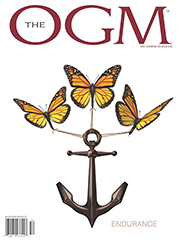by Tina Olivero
| 1 comment
Published on September 18th, 2013
Dogs on Drugs
Did you know …
- 77 percent of drug users are employed on a job site?
- Addicted workers cost 300 percent more in benefits, are absent 16 times more often, and are one-third less productive than non-addicted workers?
- 47 percent of workplace accidents resulting in serious injury are caused by substance abusers?
- 40 percent of workplace accidents that result in death involve drug or alcohol use?
Given these statistics on workplace drug use—it’s clear that drugs dramatically impact safety! When an employee reports to work under the influence or uses alcohol or drugs at work, he poses a danger to himself, his colleagues, the public, and the environment. This is a high price to pay for safety! Entrepreneurs Justin and Cathy Daniels comprehend the direct impact of drugs on performance and safety. Together, they coordinated an industry solution that would directly support workplace safety: Detection services with North Atlantic K9.
North Atlantic K9 is a company with a powerful vision. This is a vision that reinforces the need for clean camps, clean rigs, and an overall clean oil and gas culture. Justin and Cathy’s business involves breeding and training dogs, and this partnered with health and safety was the tie that united their two passions. With being involved in the canine industry for over 15 years—breeding German Shepherds, showing, and obedience training—they now have extended into canine drug detection work. Having a background in health, safety, and environment and a Newfoundland and Labrador Construction Safety Association “COR” recognition, they understand that companies and safety officers want to keep people safe, and safety starts with clear minds and bodies. Let’s face it—the oil industry is a big game and safety is paramount. To assist the industries, North Atlantic K9 offers a solution that supports the elimination of drugs onshore and off.
The Right Dog for the Job
With national and international connections in specialized K9 training over the past several years, it was a natural progression for them to expand their own program in 2012 to include working with one of the NAPCH (National Associations of Professional Canine Handlers) master trainers. With his knowledge and over 30 years’ experience in the field, he trained both the handlers and their dogs to become certified professional drug detection teams.
Training for this field involves an extensive understanding of behavior, psychology, and education on how to “handle” canines during the detection process. Once trained, handlers and their dogs undergo the Narcotics Detection Testing certification, as this test determines the dog’s ability to detect narcotics. In order to achieve certification, teams must score a minimum of 90 percent or higher.
It takes a lot of time to find the right dog for the job. Detection canines need to have a super-high drive combined with an obsessive character, and stamina to maintain a focus for extended periods of time.
Currently, North Atlantic K9 has three certified detection handlers and their three main dogs: Rudy, a male German Shepherd, certified for the detection of both drugs and bed bugs; Benny, a male Labrador Retriever, certified for drug detection; and Lucy, a 9-year-old veteran female Labrador Retriever, also certified for drug detection.
Training a dog for this work can typically take up to 12 months, depending on the dog’s stamina, focus, and motivation. Training continues long after the official process. At North Atlantic K9, they train with their dogs daily in order to keep the canines in tune with their job and their goals.
Justin says, “We are positioned to serve the oil and gas industry. It’s a maturing market in Newfoundland and Labrador, and, as the industry grows, the need for detection services has increased and we are servicing that.”
Justin continues, “Ultimately, clients need a clean culture and a safe work environment. Zero tolerance policies are being adopted more and more in many industries and work- places today. Our industrial and commercial searches ensure that people are safe, and everyone understands the no-tolerance policy that their leaders are committed to. At the end of the day, this prevents accidents, improves performance, saves lives, and dramatically mitigates risk. We are proud to help our clients deliver on that commitment.”
Did you enjoy this article?
 Knowing Where Everyone Is – At All Times
Knowing Where Everyone Is – At All Times Safety: A Relentless Pursuit
Safety: A Relentless Pursuit Leading the Industry Standard in a Vacuum…
Leading the Industry Standard in a Vacuum… Technical Rope and Safety
Technical Rope and Safety How Clean is Your Air?
How Clean is Your Air?
